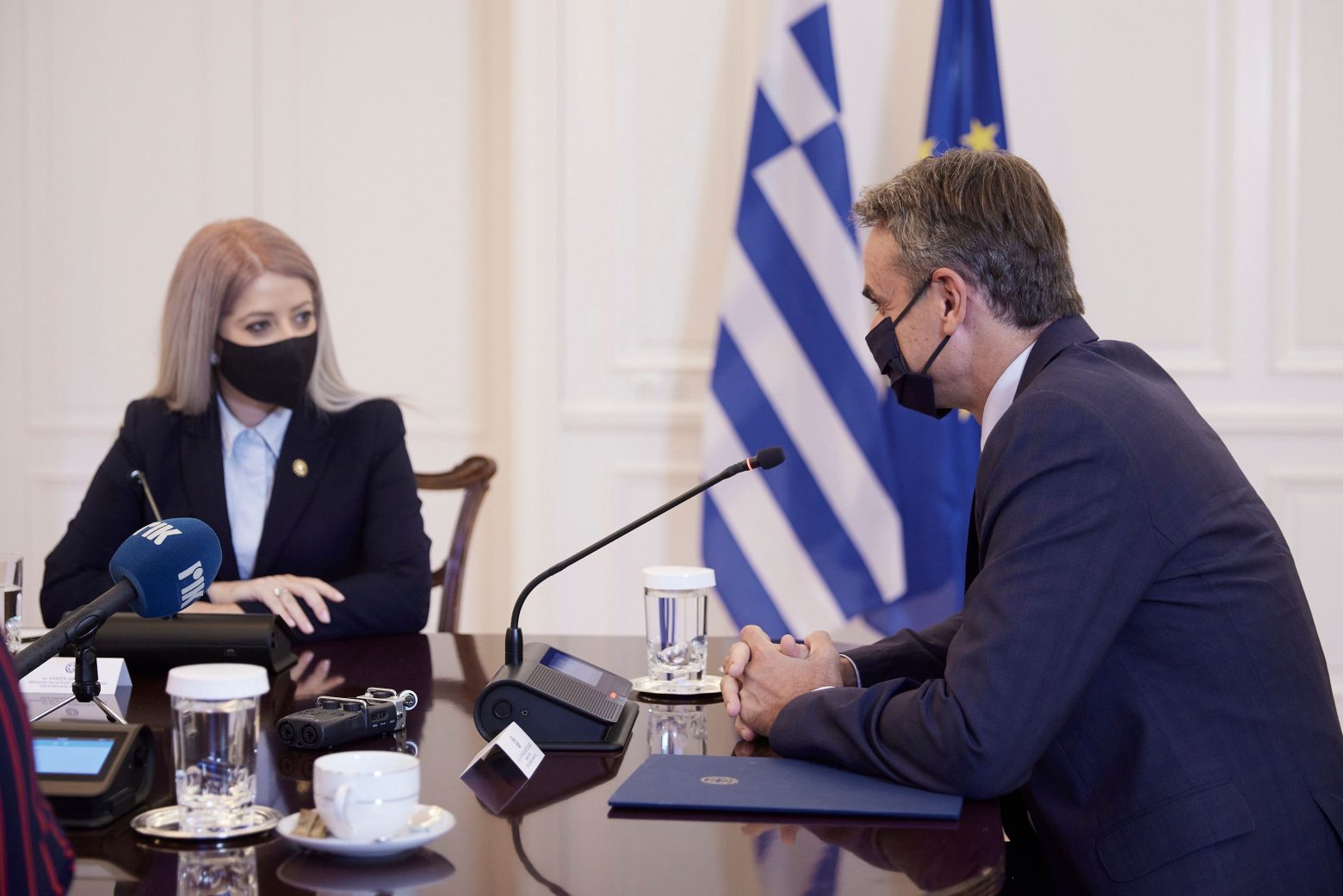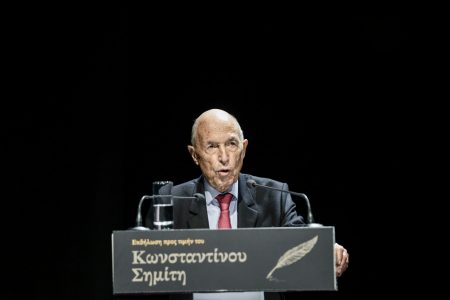Prime Minister Kyriakos Mitsotakis and Parliament Speaker Konstantinos Tasoulas discussed closer bilateral coordination in confronting Turkish threats in Cyprus’ EEZ and the prospects of a Cyprus solution with the visiting President of Cyprus’ House of Representaives, Annita Demetriou.
The meeting comes days after Ankara blocked the seismic research vessel Nautical Geo in Cyprus’ Exclusive Economic Zone, the most recent of a string of provocations against Cyprus and Greece in the Eastern Mediterranean.
Top priority: Withdrawal of Turkish troops, solution in UN framework
Mitsotakis said that a top priority for Greek foreign policy is to end the Turkish occupation of the island and reach a comprehensive settlement based on the UN framework, which provides for the creation of bi-zonal, bi-communal federation, with a single sovereignty (one state) and international standing, and a single citizenship, as provided in UN Security Council resolutions.
The PM said that the basis of a solution must be the UNSC resolutions and the EU acquis that must be enforced throughout the entire island. He stress that a solution is inconceivable without the abolition of the anachronistic Treaty of Guarantee of 1960 – which made the UK, Turkey, and Greece guarantors of Cyprus’ independence – and the complete withdrawal of Turkish troops, which occupy 37 percent of the island’s territory.
“I want to assure you once again that Greece and Cyprus remain absolutely coordinated in order to respond to Turkish provocations methodically, in an organised fashion, and always in line with international law,” Mitsotakis said.
Tasoulas: National issues at difficult juncture
Tasoulas spoke of a further strengthening of inter-parliamentary cooperation between Greece and Cyprus in the face of mounting Turkish threats and with the backdrop of the recent Greece-France mutual defence pact.
“The national issue of Cyprus is at one of its most difficult junctures. Turkish intransigence and aggressiveness have exceeded all limits. Yet, the tightening of Greece-Cyprus relations, and the coordination which is reflected by the presence of the President of the House of Representatives [of Cyprus] is one of the weapons with which we deal with the worsening of Turkey’s behaviour and its refusal to enter a dialogue, despite repeated formal calls from the UN,” Tasoulas said.
“It is certain that our response to all these illegal violations, provocations, and aggressiveness is linked to a recent, major geopolitical change in our broader region, thanks to the historic Greece-France defence agreement. The strengthening of the strategic Greece-France relationship is not inconsequential for the broader interests of Europe or as regards the just struggle of the Republic of Cyprus,” he added.



